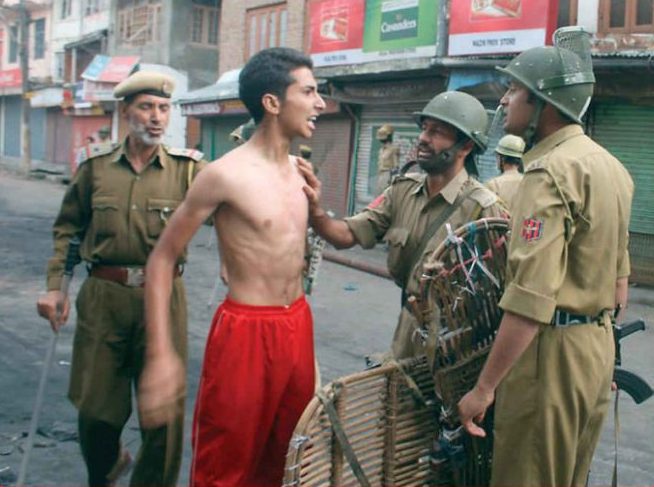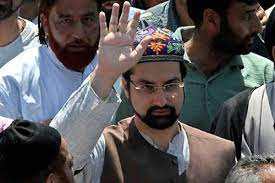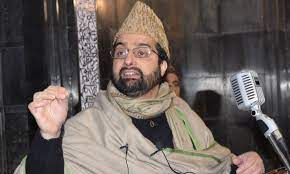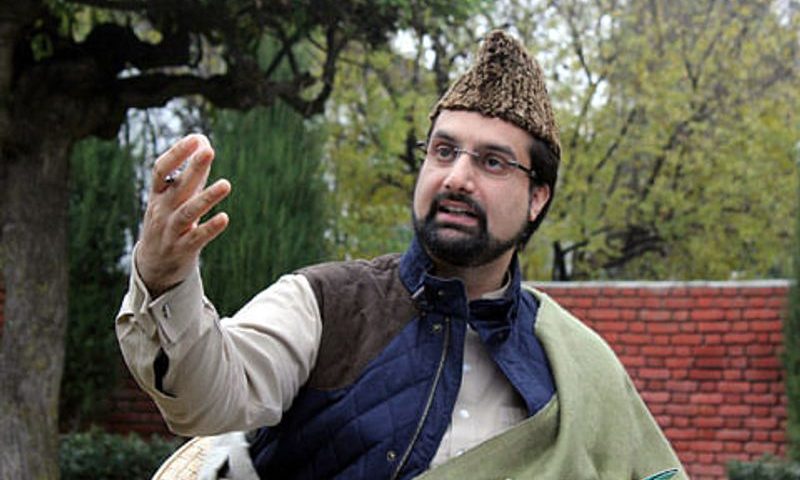Pakistani / Kashmiri leaders and media must tell world that “armed struggle and resistance against illegal Indian military occupation and repression in (Indian occupied Kashmir) are not terrorism. In 1982, the UN “reaffirmed the legitimacy of the struggle of peoples for independence, territorial integrity, national unity and liberation from colonial or foreign domination and foreign occupation by all available means, including armed struggle”.
The shooting down of two Indian jets by the Pakistanis and continuous violations of ceasefire at the control Line in Indian held Kashmir is just not linked with the upcoming Indian elections but also have deeper sinister plan. Pakistani leaders and some ministers behaving like clowns should understand the severity of the issue as ‘war is not over yet’. Media should stop scoring own goals and Pakistan need to keep an eye on Pro Indian minority anchors in media who were part of RAW agent Kulbhushan Network.
Modi’s Israeli advisers and Nazi arms dealers are directly involved in the killing, shootings and blinding of Kashmiri protesters with pellet guns as well as attempting to create Palestine like situation in occupied Kashmir by land-grabbing and forced evictions of Kashmiris replacing with Hindus. Pakistan must tell the UN and world that any changes in special status or attempt change the demography of Indian Occupied Jammu and Kashmir should be taken as an act of war and violation of international law. The UN has rejected India’s claim that Jammu and Kashmir is part of the Indian Union. It remains disputed territory. The right of self-determination of the Kashmiri people has been forcibly denied by the Indian military occupation of Jammu and Kashmir.
Since 1998 over 100,000 Kashmiris were killed, 1045597 detained, 11,111 women raped, 22898 widows and 1007756 orphans and sadly USA, EU and its allies never condemned these atrocities by Indian occupying armed forces in Kashmir which is highest militarized zone in the world.
The question is does India regard the Kashmiri freedom struggle as terror? There is a legal and a political reality. The UN has acknowledged the Kashmiri right of self-determination in 1948-49. In 1974, it reaffirmed “the duty of States not to use armed force to deprive peoples of their right to self-determination”.
Despite all of the above facts, political realities cannot be wished away. Only UNSC resolutions under Chapter 7 are enforceable. It is inconceivable that the UNSC will ever pass a Chapter 7 resolution on Jammu and Kashmir against the wishes of India. None of Pakistan’s friends would support such a development.
Pakistan’s formal position on Kashmir does not need to change at all. But its strategy does need to be revisited to ensure its own policies do not inadvertently harm Kashmiris by allowing India to distract international attention away from its repression. Pakistan should honestly inform its people there is no alternative to a negotiated and principled compromise settlement with India that is verifiably acceptable to Kashmiri opinion.
India blames Pakistan for not fulfilling conditions for the plebiscite. Even if this were so, it could not derogate from the rights of the people of Jammu and Kashmir. The fact that UN resolutions on Kashmir were adopted under Chapter 6 in no way reduces the obligation of member states and of parties to the dispute to respect and implement them. Nor does the Shimla Agreement affect Kashmiri rights.
Article 35A and Article 370
Article 35A, which is part of The Constitution (Application to Jammu and Kashmir) order, gives the state legislature the power to define the “permanent residents” of the state and provide them with special rights and privileges. An NGO, We The Citizens, had challenged the article’s legality in the Supreme Court on the grounds that it was never presented before Parliament and was implemented on the president’s orders.
The Constitutional provision bars citizens from other parts of the country from acquiring immovable property in the state, taking up jobs with the state government, availing of state-sponsored scholarships, or settling permanently anywhere in Jammu and Kashmir.
The article was implemented by former President Rajendra Prasad in 1954. Under the Constitution (Application to Jammu and Kashmir) Order 1954, the provision appears as an “appendix” in the Constitution and not an amendment.
Article 370 of the Indian Constitution grants Jammu and Kashmir special status. On August 8, the Supreme Court had admitted a plea challenging the legality of Article 370 of the Constitution and the special status it grants to Jammu and Kashmir. The court had issued a notice to the Central government and sought a response.
It is time for Pakistani Government as party to the Kashmir dispute to have an active policy and do damage control to the Kashmir cause by various previous Government. These weekly visits of the Pakistani side Kashmiri leaders to United Kingdom must cut down do some real work in rest of the world. In case of all out war with India on the issue of Kashmir few nukes should also be send to the friends and backers of these atrocities against Kashmiris, as late Gen. Zia ul Haq had a (PAF) Pakistan Air Force squadron ready to go to the Nazi arms dealers’ posts in occupying territories in Palestine.






